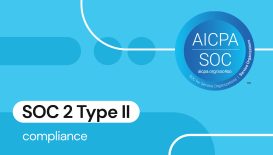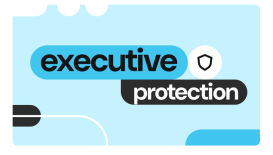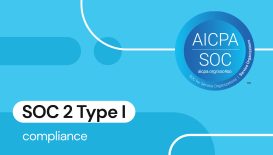Monitoring data brokers for personal information exposure: what businesses need to know

Monitoring the web for exposed personal information is a crucial part of the privacy protection cycle. OneRep automates the process so people and businesses stay protected.
People-search sites, such as White Pages, MyLife, and Intelius, sell people’s sensitive information and lure buyers in by making private data about personal lives publicly available. If no proactive steps are taken to remove this data, anyone can turn to Google and find your address, phone number, email, birthday, family details, income range, and more.
Monitoring privacy-breaching websites for potential exposures is a critical component of any successful privacy protection cycle.
Monitoring privacy-breaching websites for potential exposures is a critical component of any successful privacy protection cycle.
Why does monitoring privacy violation websites matter?
Many people wrongly assume that privacy is immediately restored after their information has been taken off the internet.
Unfortunately, data brokers lack integrity, grow in numbers, and bypass consumers’ efforts to stay private. This failure to respect people’s intentions is the inevitable consequence of a $500M industry predicated on compromising people’s privacy. As a result, there are two major reasons why monitoring people-search sites for personal information exposure is an essential stage in the ongoing privacy protection cycle and should never be disregarded.
1. People-search sites relist removed information to remain competitive and make more money
Opting out of a particular people-search site is just the beginning. Even after people officially opt out of the process, their information will likely reappear on that website.
People-search sites cash in on consumer data, applying a “more-is-better” principle to outpace their competition. Consequently, people-search sites continuously search for new sources of information and pull their data from various public records databases, such as LexisNexis and TransUnion. These public records databases regularly update their information, which people-search sites eagerly re-ingest.
What’s more, people-search sites don’t have a sophisticated enough process to filter out anyone who has opted out of their website, and they are disincentivized from appeasing people who have already opted out from their updates as it means more data and more money for them.
2. People-search sites grow in numbers
The people-search sites industry is a clandestine global network of 2,500 to 4,000 data brokers. In the U.S. alone, there are more than 150 people-search sites, and their number keeps growing.
New data brokers become copies of the existing ones and use the same algorithm of data collection from publicly available sources as well as buying data from any businesses eager to sell it, existing data brokers included. Therefore, the same old personal records are likely to appear on newly created data broker websites, making any adult U.S. citizen, including people who opted out of other services, visible and vulnerable again.
Should businesses monitor their employees’ privacy?
If you’re reading this, as an individual, you probably have an innate sense of the importance of monitoring for data privacy infringements. But even if you know how to shrink your digital footprint, you’re still exposed if the people in your personal and business networks are not taking precautions to protect their online privacy.
The same is true for businesses. They are only as safe as their most digitally vulnerable employee. Cyberattackers can use the sensitive data people-search sites make publicly accessible to form personalized phishing attacks on employees. The impacts of that click can have significant consequences for businesses.
At the same time, there is an urgent danger of online privacy leaks for anyone with public-facing roles and upper management and C-suite executives. These professionals have greater visibility, which makes them targets. Cybercriminals can use their sensitive data to target their accounts or other employees, thus tricking those people into social engineering scams. Someone with a grudge can use that information to stalk, intimidate, or slander company leaders.
It’s obvious that employees’ digital health impacts businesses, and taking care of employees’ online privacy is beneficial for both. Fighting back against data brokers not only protects convenience and personal safety but eliminates risks of fraud, cyberattacks, and social engineering manipulation that pose security threats to businesses.
Privacy recovery is ongoing, but it doesn’t have to be a burden
Personal data is always at risk of exposure for many reasons, be it the constant information flow from public records databases, the emergence of new data brokers, information exchanges between people-search sites or even work-related/business causes intensifying the risk.
This makes privacy protection a cycle that never ends. OneRep has automated this cycle to protect both people and the businesses they work for. Our platform follows these three steps and repeats them without fail to detect and remove personal data (and keep it removed) from the internet:
- We SCAN 192 sites to find where the individual is exposed.
- We ERASE personal information from these sites.
- We continuously MONITOR each of the 192 sites to keep sensitive information private.
The comprehensive approach and equal attention to each step of this protection cycle make OneRep an essential tool for privacy protection maintenance.
Contact us today to learn how you can add OneRep to your benefits package to safeguard your team and your business.




Iryna is a marketer and content writer. She's been been focused on privacy for 5+ years and is on a mission to spread cybersecurity knowledge to as many people as possible.